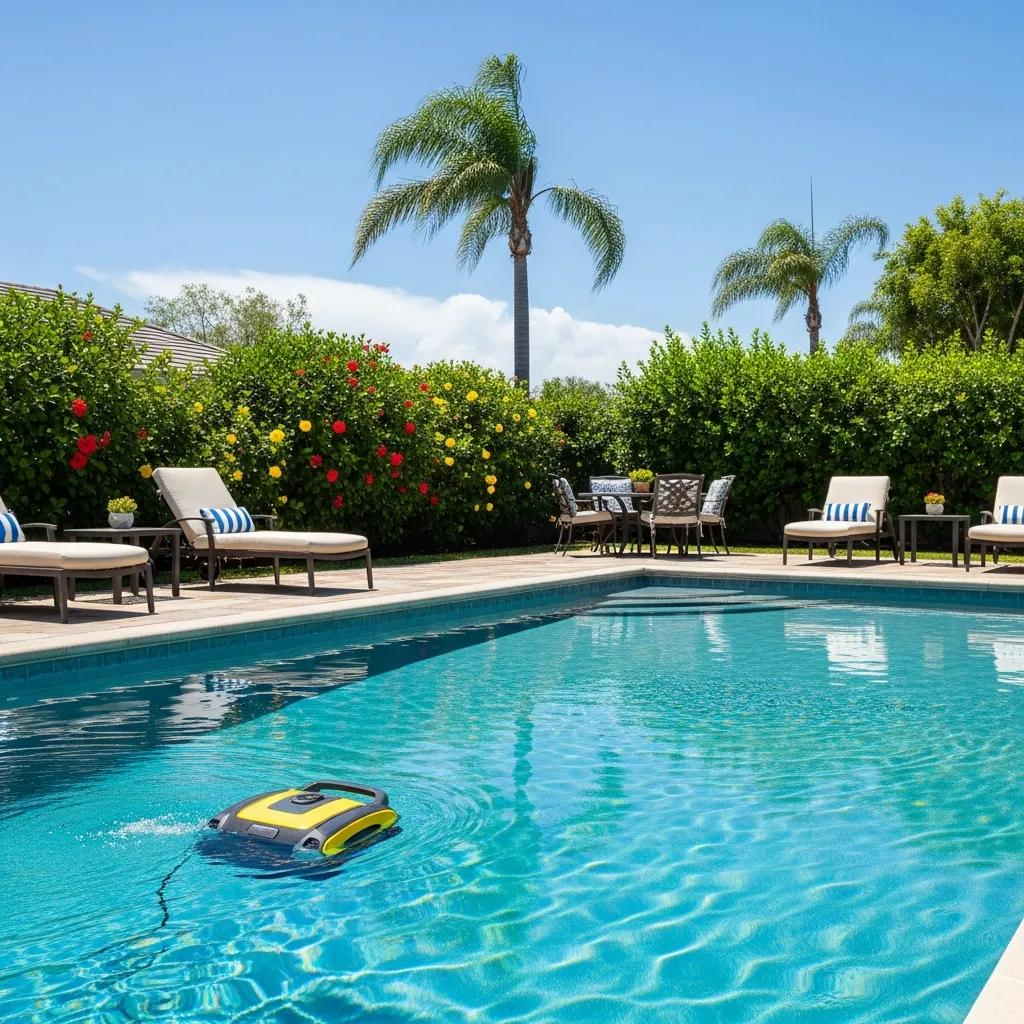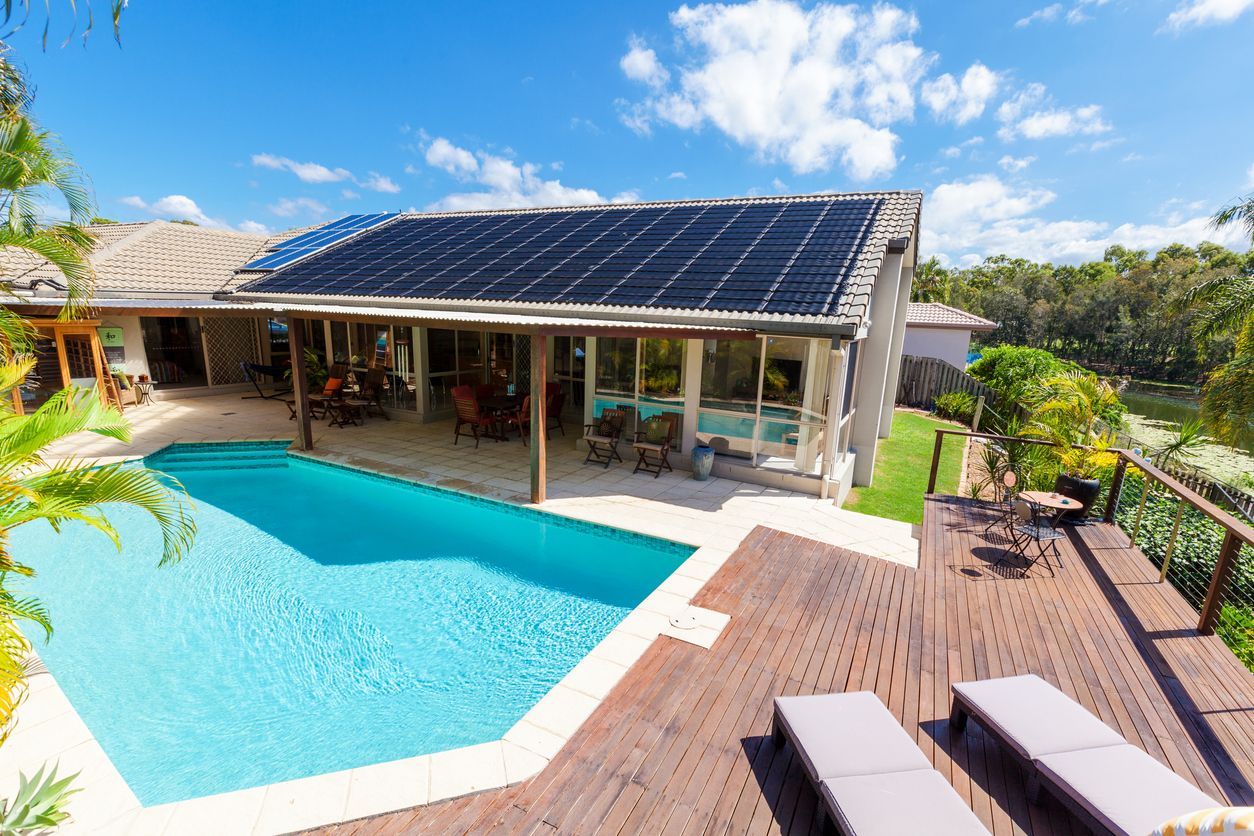
Picking the right pool filter isn’t something most homeowners think about until they start running into water clarity issues or rising maintenance costs. Whether you’re dealing with debris buildup, cloudy water that won’t clear up, or an increase in chemical use, the wrong filter can lead to more headaches than solutions. For homes in Cape Coral, where pool use is common year-round and especially heavy in the summer, having the proper pool filter installed isn’t just convenient — it’s key to keeping pool water safe and easy to maintain.
Pool filter systems aren’t one-size-fits-all. The size of the pool, how often it’s used, and even the surrounding environment can affect filter performance. Choosing the right kind of system — and making sure it matches your pool size — helps cut down on wasted energy, extra work, and long-term damage to your filtration setup. This breakdown explores the different pool filter systems available and how to choose the best one based on your pool size in Cape Coral.
Understanding Pool Filter Types
There are three main types of pool filters widely used in residential pool systems: sand, cartridge, and diatomaceous earth (DE) filters. Each type filters debris differently and has its own strengths and trade-offs.
1. Sand Filter
- Uses fine-grade sand to trap dirt as water passes through.
- Best suited for medium to large pools that are used regularly.
- Easy to operate and lasts several years without needing replacement sand.
- Requires backwashing, which can result in water waste.
- Less effective with very small particles.
2. Cartridge Filter
- Uses a replaceable cartridge element to capture dirt and debris.
- Works well for small to medium-sized pools with light debris.
- Easier to maintain than sand filters and does not require backwashing.
- Needs regular rinsing and periodic cartridge replacement.
- Filters finer particles than sand filters.
3. Diatomaceous Earth (DE) Filter
- Uses powdered fossilized algae (DE powder) to coat filter grids inside the tank.
- Offers the finest level of filtration, capturing very small particles.
- Ideal for large or high-use pools where water clarity is a priority.
- Must be carefully handled and recharged during maintenance.
- Typically more expensive and time-consuming to maintain.
Each system fits different needs based on pool size, how often it’s used, surrounding environment, and maintenance preferences. A pool under tree cover needing fine particle filtration might benefit most from a DE or cartridge filter. A pool that gets heavy use every day may be a better fit for a dependable and lower-maintenance sand filter system.
Filter Size Needs Based on Pool Volume
Filter sizing is just as important as the filter type. A unit that’s too small for your pool will work harder than it should, leading to poor water quality and frequent cleanings. If it’s too large, you might waste energy or face installation challenges.
Here’s how to match filter size to pool volume:
- Small Pools (Under 10,000 gallons)
Cartridge filters are commonly the best choice. They’re compact, lightweight, and offer fine filtration without requiring backwashing. Easy maintenance makes these ideal for smaller applications.
- Medium Pools (10,000 to 20,000 gallons)
A larger cartridge or standard sand filter works well here. Sand filters need less frequent maintenance, whereas larger cartridges provide superior water clarity at the cost of more hands-on upkeep.
- Large Pools (Over 20,000 gallons)
Sand or DE filters usually perform better for larger pools. DE systems provide excellent clarity, but sand filters are easier to maintain and better suited for handling high volumes of water.
Improper sizing creates more work and puts stress on both your filter and pump system. For example, a homeowner with a mid-size pool may install a small cartridge filter thinking it will save costs, but finds themselves cleaning it too often just to maintain clear water. Choosing the right size from the start avoids these headaches and supports better energy use and water quality.
A properly sized filter will cycle all the pool water within a few hours, helping maintain safe water chemistry and boosting overall system performance during summer months in Cape Coral.
Why Professional Installation Matters
While homeowners may consider installing filters themselves, professional installation can make a big difference. Pool systems require accurate connections, proper flow rates, and matching the correct filter to the pump size. Missed steps can result in clogs, leaks, or underperformance.
Our professionals inspect your pool size, usage patterns, and plumbing layout to choose and install the right filter. We make sure your system has proper water flow and install everything to manufacturer standards, avoiding common mistakes such as:
- Installing the wrong filter type or size
- Incorrect pipe fitting and poor circulation
- Missing components such as backflow valves
- Not calibrating water flow during final setup
- Overloading your pump with an incompatible filter
A filter isn’t just a part of the system — it’s central to water health and equipment protection. Professional installation ensures filtration areas are optimized, pressure is stable, and the system can handle seasonal demands in Cape Coral.
Tips To Keep Your Pool Filter Operating Longer
Any filter system — DE, cartridge, or sand — lasts much longer with consistent care. Maintenance doesn’t just prevent clogging or water quality issues. It also reduces chemical use, protects pool equipment, and extends filter lifespan.
Here are basic maintenance tips by filter type:
- Backwash sand and DE filters when pressure increases by 8 to 10 psi.
- Clean cartridge filters monthly during peak use months.
- Replace cartridges every 1 to 2 years based on condition and use.
- Recharge DE filters with fresh powder after each backwash.
- Check for cracked housings, leaking connections, or worn O-rings.
- Monitor filter pressures through the gauge for signs of resistance.
- Keep skimmer baskets clean to support free-flowing water to the filter.
Staying on top of this routine makes it easier to catch problems early. If your pressure gauge spikes suddenly or your water turns murky despite treatment, your filter may be overdue for servicing or replacement.
Ignoring buildup or skipping seasonal service shortens the filter’s service life and increases costs. Regular maintenance allows the system to run cleaner and longer, which is especially useful through long summer weather in Cape Coral.
Smart Choices Keep Cape Coral Pools Running Clear
The most effective way homeowners in Cape Coral can reduce ongoing pool issues is to install a properly matched filter system. Choosing the wrong type or size creates more work, costs, and risks to health and equipment.
A good pool filter system starts with selecting the right model based on pool volume and expected use. Next, its success depends on how it’s installed. Our professionals take care of this process to reduce mistakes that lead to inefficient systems. Finally, regular cleaning, backwashing, replacing parts, and monitoring pressure extends the life of any filter system.
Whether your household enjoys occasional swims or daily use through summer, the right filter system will help you manage clear water and seamless pool operation year after year in Cape Coral.
If you have been dealing with ongoing maintenance issues and want a long-lasting solution for your home pool in Cape Coral, consider professional pool filter installation in Cape Coral provided by Seemore Services, LLC. Our professionals work with you to ensure that your filter system is perfectly sized and installed to keep your water clear during summer and throughout the season, reducing the number of repairs and simplifying upkeep. For a quick estimate or to book a service visit, please contact us today.
Customer Testimonials

.png)
Pool Winterization Guide for Southwest Florida














